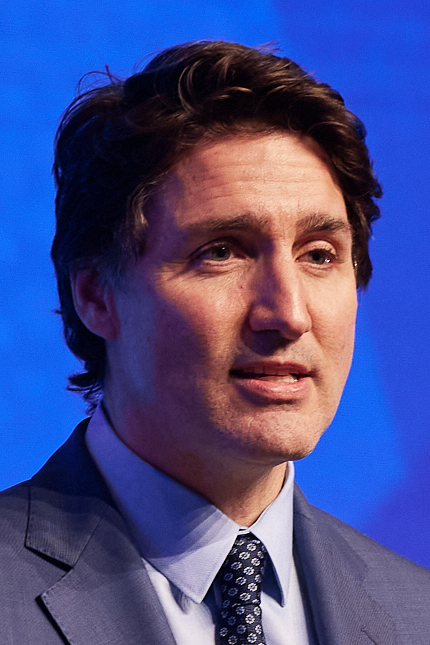Canadian Foreign Policy Blogging: Assassination Edition
I’m surprised that our Senior Canadian Foreign Policy Correspondent hasn’t blogged this already, but it looks like India iced a dude in British Columbia:
On June 18, Nijjar delivered a speech at the Guru Nanak Sikh Gurdwara, where he was president, in Surrey, British Columbia. Afterward, he walked to the parking lot and climbed into his car. Shortly after 8 p.m., two men in masks approached Nijjar’s car and opened fire. The two men escaped in a waiting getaway car. While the Royal Canadian Mounted Police have yet to announce the identities of the suspected gunmen, the homicide team did identify their vehicle.
Trudeau said he presented the accusations directly to Indian Prime Minister Narendra Modi “in no uncertain terms” when the two met in New Delhi during the Group of 20 summit last week. Ottawa has also raised the issue with Indian intelligence. “Any involvement of a foreign government in the killing of a Canadian citizen on Canadian soil is an unacceptable violation of our sovereignty,” Trudeau said, demanding India’s full cooperation with the investigation.
And now there’s a bit of an unpleasantness:
India has officially denied that it was involved in the extrajudicial killing of 45-year-old Canadian national Hardeep Singh Nijjar. But reports suggested that Canada had been working with other allies, possibly including the U.S., for several weeks to build evidence of what Trudeau called “credible allegations of a potential link between agents of the government of India and the killing of a Canadian citizen.”
Canada has not released that evidence, so it’s publicly unclear how credible those allegations really are. But there was certainly no dearth of political intrigue surrounding the victim. Nijjar was already a wanted man in India, where he had been designated a “terrorist” for advocating Sikh separatism.
In the aftermath of Trudeau’s allegations, Hindu nationalists came out in celebration on social media, as if they believed the charge. In comments to the New York Times, a leader of India’s ruling Bharatiya Janata Party (BJP) suggested that New Delhi was not afraid of taking action. “They need to understand that this is not the same India,” he said. “It is much stronger under [Prime Minister Narendra Modi’s] leadership.”
For the United States, Nijjar’s case poses several serious challenges. If India is a key ally, Canada is much more. It is a member of the Five Eyes intelligence coalition and of NATO. It is also crucial to the war effort in Ukraine and has often fought alongside the U.S. elsewhere.
But the challenge goes far beyond Canada’s importance. So far, Washington has been relatively guarded in its response because of India’s perceived strategic significance in countering China. Yet, the rationale for countering China is precisely that Beijing engages in the sort of activities of which Trudeau has now accused India — extrajudicial killing and transnational repression, violating sovereignty, and trampling on the rule of law.
At the risk of both-sidesing this, both sides do actually have a point. From what I can tell India’s grudge against this guy is legit; he was a well-known financier and organizer for terrorist activity who was using Canada as a sanctuary for continuing his activities. India’s complaints about Canada aren’t terribly dissimilar from Turkey’s complaints about Sweden, with the fundamental and long-term problem being that liberal democracies create space for diaspora opponents of authoritarian and semi-authoritarian and even mostly democratic regimes to organize, refit, and resist their home governments. Law enforcement and intelligence agencies in the liberal democratic states usually lack a good understanding of the political dynamics involved and generally don’t care very much about Terrorist vs. Freedom Fighter dynamic as long as the explosions happen somewhere else. This is not a problem that can be solved; it is a reality that needs to be managed.
But you can’t expect to shoot a guy on someone else’s territory and not ruffle some feathers. Canada is absolutely correct to come after Modi on this, and to acknowledge the right of India (or Russia or China or Chile or North Korea or, yes, the United States) to just kill whomever it likes on your sovereign territory would be to compromise the fundamental protections offered in liberal democracies. Canada has options in both deterrence-by-consequence and deterrence-by-denial. With respect to the former, the Modi regime may feel that the hit brought too much public heat to contemplate behaving similarly in the future, although the reaction of Indian media has been extremely positive. India may also be gambling that it’s important enough to the United States that Washington will restrain the howls coming out of Ottawa… although this hope would be more firmly grounded if India could do a better job of moderating its attachment to Russia, something we’re not really seeing at this point. With respect to the latter, Canada’s intelligence and police services have tools to clamp down on Indian intelligence activity within the country, and can generally make life inhospitable for the Indian security services in ways that, ironically, make Canada an even more safe space for anti-regime organizing.



